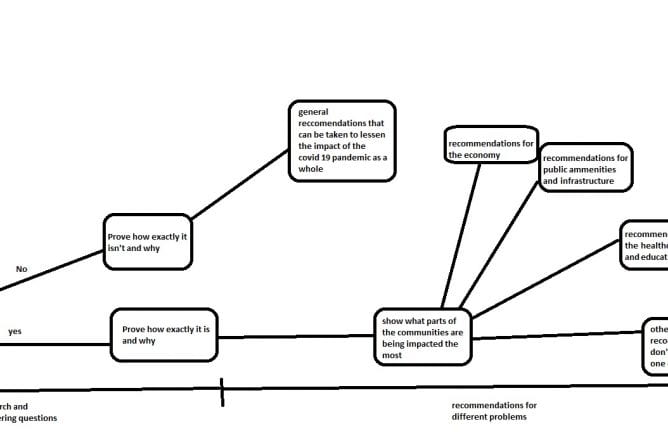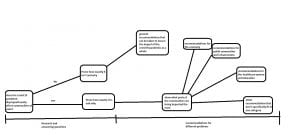Living an Impact-Focused Life
What’s your Why?
I believe I was put on this earth to:
Improve the lives of others. I will achieve this by learning as much as I can about topics I believe will enable me to have the most impact on the world. Meanwhile, I will try to improve the lives of others as much as possible.
My purpose is to:
Create wealth and prosperity and improve the lives of others. I will do this by innovating within a company or create my own business to create solutions for the world’s problems.
I believe (my core values):
Equity, freedom, and wealth. Equity is one of my core values because I know the world isn’t a fair place but it would be better if everyone was treated equitably. Freedom is one of my core values because being able to make your own choices is a key component of happiness. Wealth is a core value because wealth enables you to have true freedom and fight for equity.
The one thing I must do before I die is:
Create something innovative for the world. Creating something to improve the world is a goal of mine. It doesn’t matter if it is a product, service, or idea. Doing this will allow me to be satisfied that I left a positive impact on the world.
My advocates and supporters all believe I:
Am capable of achieving my goals. Although sometimes I feel isolated and that I have no advocates/supporters I remind myself that I do. This feeling empowers me to continue to pursue my goals.
The evil I want to eradicate in this world is:
Stupidity is the one thing that holds humans back from progress. Stupidity is different from ignorance where that ignorance can be solved easily with education and that ignorance isn’t a choice. Ignorance is the default setting that everyone is on while stupidity is a choice that people make purposely keep themselves ignorant.
I want to work in order to:
Improve the lives of myself and others. I see this question as very similar to the first two since I am always working. Since I am always working all of my work is to achieve my purpose one step at a time.
Walk the Talk – Your How
If you are truly committed to your Why, you show it in your everyday behavior. It is all air until you do it. Working from your Why, How do you prove that you are true to your Why in all you do?
I always: improve myself and learn something new every day. I do this by always setting reasonable goals for myself each day and achieving those goals. This allows me to keep a stable level of productivity. I may not always have the same amount of goals for each day but I at least set one goal. Having a variable amount of goals each day allows me to put in more work when needed.
I never: actively make bad decisions that can harm people. I have made decisions that harmed people in the past but all of them were unintentional. If I ever make decisions like this I will take full responsibility. Maying a decision that I know will harm people is evil and I am not evil.
My work style is: very unstructured but highly efficient. since I set at least one goal for myself I plan on getting it done either before the deadline or before I sleep. This leads my work style to seem unstructured from an outside perspective.
I try to treat people: fairly and how they treat me. I always treat all people fairly first and the best when they treat me with respect. When people don’t respect me I will distance myself from them to preserve my dignity.
I approach problems by brainstorming solutions then I work to structure my solution to consider all variables. I take my time brainstorming solutions to get them as streamlined as possible then I will construct the solution as fast as possible.
Victories are the time to: celebrate and plan the next big victory. Victories are great and some can be permanent but a lot of them are temporary with more work on the horizon. I will celebrate for less time than most so I have more time to plan the solution for another victory.
If another attacks my point of view I: Respectfully debate my point while still treating the person with dignity. I will continue to do this unless the person attacks my character.
If I fundamentally do not agree with what an organization or person is doing, I will: respect their decision and move on to facilitate positive change elsewhere. I understand that I am only one person and one person can only do so much to change an organization.
Your Credibility – Your Whats
You have just spent some considerable time at Lehigh, and specifically in the Global Social Impact Fellowship, on many whats. Your whats include lab research, formal presentations, writing research papers, engaging with people in other cultural contexts, building prototypes, designing and building systems, raising funds, hiring employees, etc. The whats you have collected along the way are critical to your credibility when you are entering the workforce or applying to the best graduate and professional schools. They signify a credible currency to which organizations can assign value. Create a list of your Whats that are truly reflective of your Why & How. You did these things because you believe (Why) and you acquired them in the following (How) manner. These are examples you can use in interviews.
| What Have I Done | List of Experiences, Accomplishments, and Lessons Learned |
| Degrees, Minors, Certificates, Fellowships | Business undeclared, undeclared minor, LVSIF, hs internships |
| Research Experiences | LVSIF, hs internships |
| Inventions and Innovations | Possible implementations to solve environmental problems |
| (Social) Entrepreneurial Ventures | LVSIF |
| Publications
(Formal and Informal) |
My hs projects and soon to be my LVSIF paper |
| Formal Presentations
(at Lehigh and Beyond) |
HS projects and LVSIFpublications |
| Awards and
External Recognition |
Degree and degrees of completion |
Articulating and learning from GSIF-related Experiences. For each of these prompts, we want you to identify one and only one specific and compelling event/incident/experience/moment and identify exactly how you grew personally and professionally through that moment.
| Teamwork Experience
(and Lessons Learned) |
Classes and class assignments. GSIF emphasizes working together with people for various projects. This allowed me to grow professionally since I was able to develop my teamwork skill by working with lots of people |
| Conflict Resolution Experience
(and Lessons Learned) |
My conflict resolution was tested in the first semester when I wanted to add many concepts to my work and I had to come up with a compromise that was satisfying for me and my professor |
| Leadership Experience
(and Lessons Learned) |
Since I didn’t have any direct group members I would point to the transition of the second semester of LVSIF where my project was changed. This allowed me to improve my leadership ability by leading myself through a difficult path of redefining my project while finding the topic to inspire me |
| Dealing with Chaos, Ambiguity, and Uncertainty (and Lessons Learned) | There was a lot of uncertainty during the first part of the project in the first LVSIF semester since I didn’t have any direct group members. I had to reach out to members who were doing the project longer than I was to find out what to do and what was in scope while trying to find something that inspired me. |
| Personally Challenging Experience (and Lessons Learned) | What challenging me was professionally networking with people. My project allowed me to work on my networking skills and my work ethic. I learned that dedication and perseverance are the keys to constantly improve my work ethic. The lesson I learned about professional networking is that I have to take every opportunity to practice the skill to get better. |
| Cross-cultural Experience (and Lessons Learned) | My cross-cultural experience was limited since I am in LVSIF and the global pandemic but I learned a lot about other people. I learned to not assume what other people’s conclusions were. Even if another person and I experienced the same exact event it’s possible that they came up with a completely different conclusion about it. |
| An experience that helped you connect your GSIF work to your discipline / major. | An experience that allowed me to connect my work with my major is a large amount of writing I did with the project. Writing enabled me to communicate better. |
| A moment that boosted your sense of agency and self-efficacy – you felt like you can speak for yourself, get stuff done, take on the world, and make it better. | when I saw all the work come together from my interviews in the first semester it showed me that with enough dedication I could produce something that could educate other and empower them to facilitate positive change. |
| A moment where you felt like you truly have a strong sense of purpose and belonging in this dynamic, globalized interdependent world. | The moment when my project was changed to focus on the global pandemic. This allowed me to see how interdependent the world was from a health perspective. |




